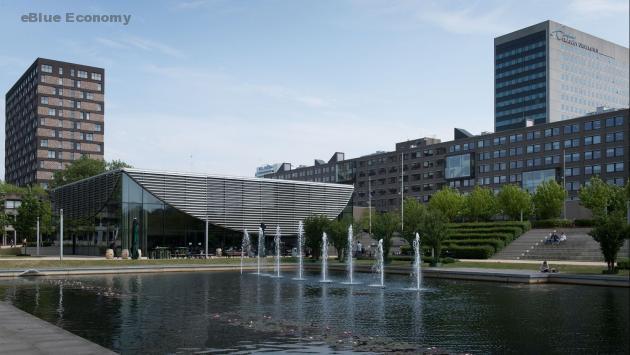Erasmus University Rotterdam (EUR) aims to educate the future leaders of the energy transition with a new range of holistic and multidisciplinary educational programmes, which will be hosted by the business school of EUR, Rotterdam School of Management, Erasmus University (RSM).
This fall, the first executive programme will start and the first courses, electives, and specializations around energy transition will be introduced in the undergraduate and graduate phases.
Energy transition is a complex issue that – to be successful – requires a holistic approach. Technical innovations are a crucial part of the solution but knowledge about legislation, finance, geopolitics, economic models, capital markets, behaviour and social innovations are also essential.
RSM intends for students to gain knowledge about the energy transition during their education and plans to give the topic a place in its undergraduate and graduate studies, as well as develop programmes for executives currently in leadership roles.

Programmes
Much attention in the programmes will also be paid to the required development of leadership skills such as complexity and systems thinking, leading transitions, stakeholder management and communication, and storytelling.
To ensure that this knowledge and these skills are given a broad foundation, RSM is working with convergence partner TU Delft and the other faculties of Erasmus University Rotterdam to ensure that all aspects play a role in the transition are covered.
Demand from the field
The demand to come up with additional educational offerings comes from Rotterdam alumni who are now themselves in leadership positions in the field.
“We met for the first time a year ago under the leadership of the Erasmus Trustfonds, because we see in practice that the challenge of the energy transition is large and complex.
We unanimously agreed that it is important for students to experience and participate early on in learning how they can make the energy transition a success now, and in the future”, said Eelco Hoekstra (member of the Executive Board at SHV Holding, previously CEO Vopak and former RSM Advisory Board member) who is one of the initiators.
Prof. dr. Derk Loorbach, Professor of Socio-Economic Transitions at EUR, agrees. “With this new, promising initiative, we can speed up the process of connecting our knowledge to the practice of the energy transition. We need to work smartly together on a just and sustainable energy future for everyone.”

Erasmus Trustfonds
The Erasmus Trustfonds, the university’s support fund (ANBI) has raised €1.5 million in donations together with 15 founding partners for the Energy Transition Fund as seed money to set up the new education programme and manage these funds.
The partners will share learnings from practice for the programme development, but EUR is responsible for the design and management of the programmes. In addition to setting up the education program, there is the intention to set up a research institute.
“There is a lot of interest in the topic of the energy transition. I am incredibly happy with the collaboration with TU Delft and other partners that will enable us to put together a broad initiative.
It is important that the current generation of students can break new ground and be prepared for one of the greatest challenges of our time.
Our mission is to be a force for positive change – and educating future leaders that help to make this change happen is a core task of our academic institution”, says prof. dr. Ansgar Richter, dean at RSM.
“The current industry leaders themselves can share their knowledge and experience for a few more years, but then they really pass the baton for this complex challenge to the next generation.
We want to feed the young generation with knowledge and perspectives from science, government, and business as soon as possible and they will feed us vice versa”, Hoekstra said.
“I am therefore more than thrilled that RSM has enthusiastically embraced the initiative, sharing with us the urgency that it will take more than just technical knowledge to manage the necessary transition.”
















